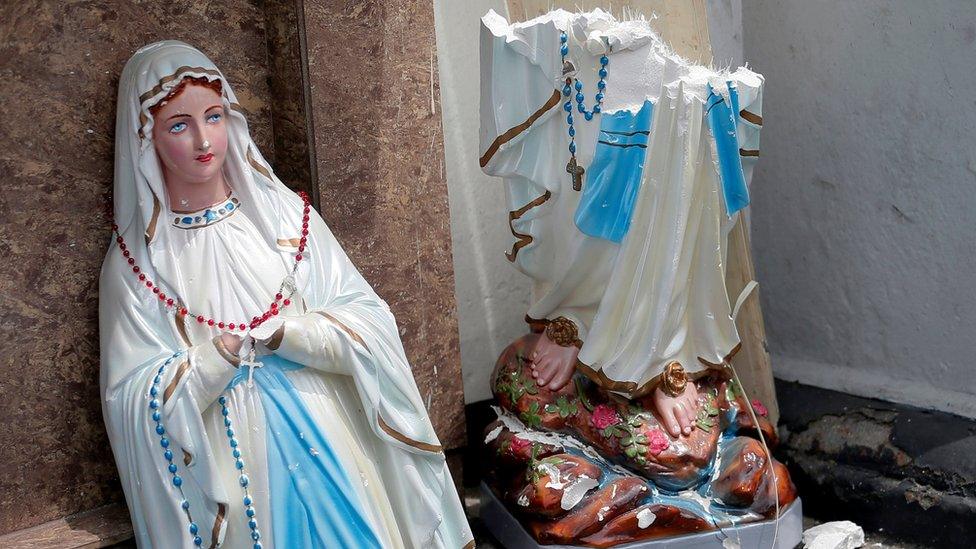Sri Lanka attacks: Public urged to surrender swords and knives
- Published
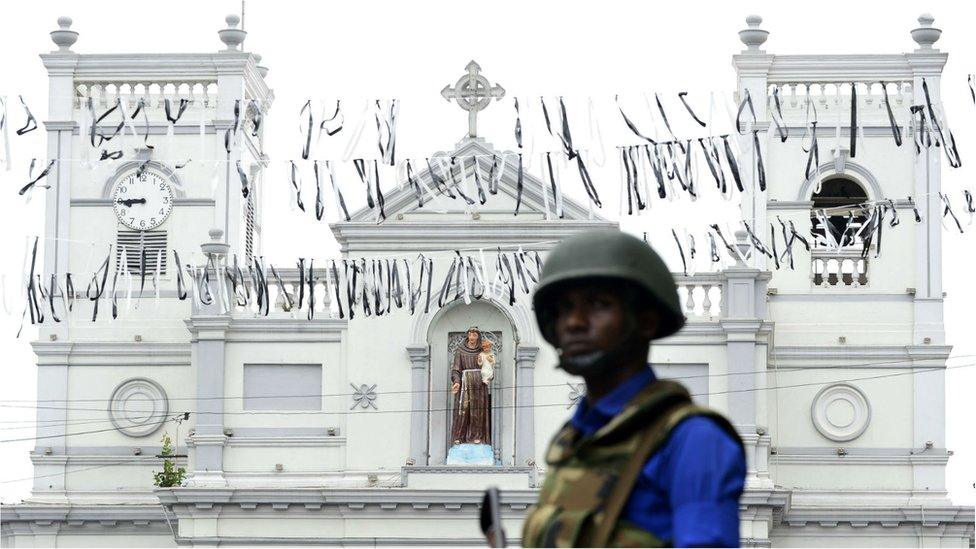
Hundreds of weapons have been seized in searches since the 21 April attacks
Sri Lankan authorities have called on the public to surrender swords and large knives amid heightened security concerns following the deadly Easter Sunday attacks.
Police said knives used for legal everyday activities should not be included in the handover this weekend.
Hundreds of weapons have been seized in searches since the 21 April attacks.
More than 250 people were killed in the co-ordinated suicide bombings, which targeted churches and luxury hotels.
In addition to weapons, police spokesman Ruwan Gunasekara called on people in possession of "police or camouflaged military uniforms" to hand them in to their nearest police station on Saturday or Sunday.
He did not confirm whether police would give an amnesty to those who surrendered weapons during the two-day handover period.
The call came as investigations into the deadly bombings continue.
Sri Lankan President Maithripala Sirisena told Reuters on Saturday that some 25 to 30 people linked to the bombings were still at large.
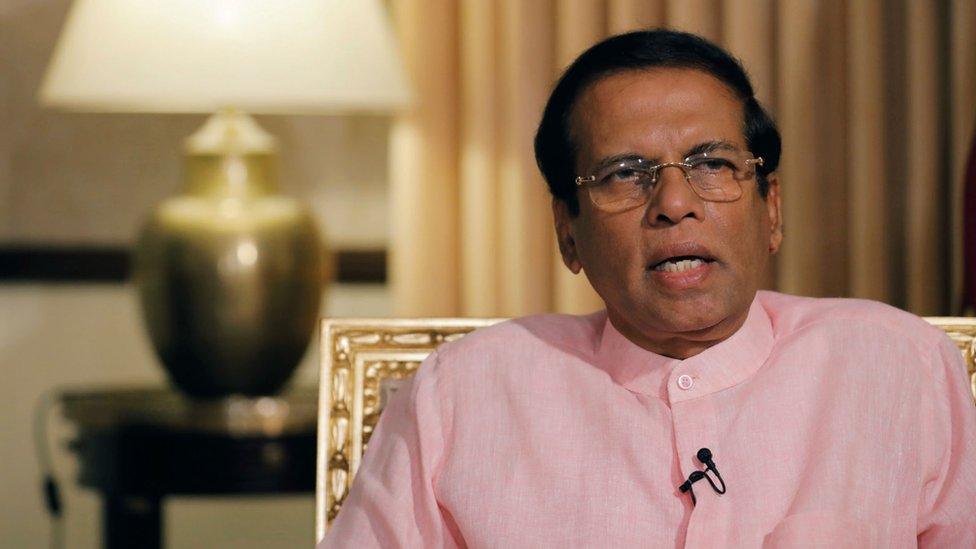
The country has tightened security since the attacks last month
"We have already identified all active members of the group and it's a case of now arresting them," he said.
The president added that there was "no information yet to say these suspects are suicide bombers."
Mr Sirisena told the news agency that he believed the Islamic State group when they said they were behind the attacks.
"It's crystal clear because after the attacks the IS organisation made an announcement claiming responsibility for the bombings," he said.
Authorities in Sri Lanka have blamed the blasts on two previously little-known local Islamist groups - National Thowheed Jamath and Jamathei Millathu Ibraheem - whom they suspect had international links.
Mr Sirisena said intelligence services from eight countries were helping Sri Lanka with its investigations.
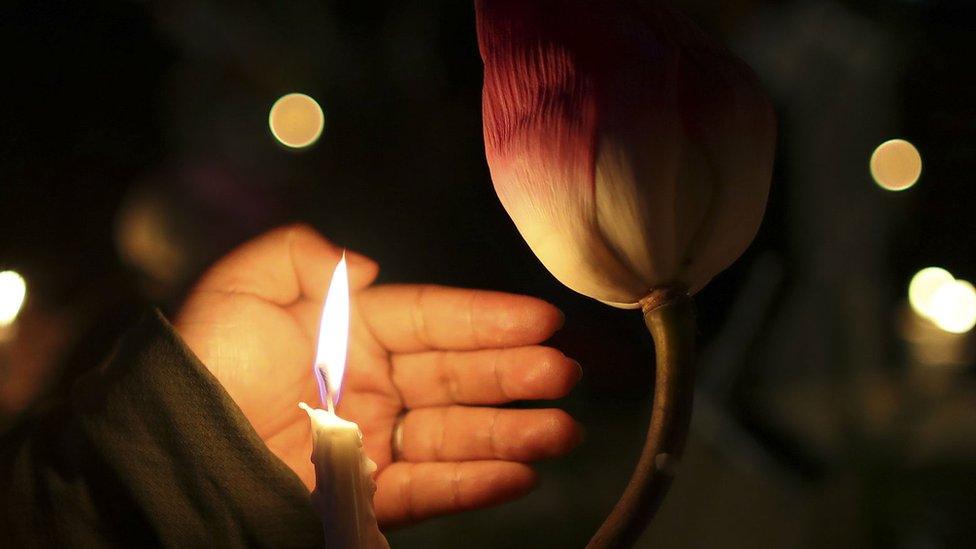
Candlelight vigils have been held in tribute to the victims of the bombings
Mr Sirisena also added that he believed the country's security forces would "eradicate terrorism" and restore stability before presidential elections, which are due to take place by the end of the year.
"Elections cannot be postponed, therefore before the elections I will bring about stability and I will eradicate terrorism," he said.
Scores of suspects have been arrested since the Easter Sunday attacks. The bombings shattered the relative peace that has existed in the nation since the civil war ended a decade ago.
The majority of people killed in the attacks were Sri Lankans, but dozens of foreign nationals, including British and Indian citizens, were also among the victims.
- Published26 April 2019

- Published28 April 2019
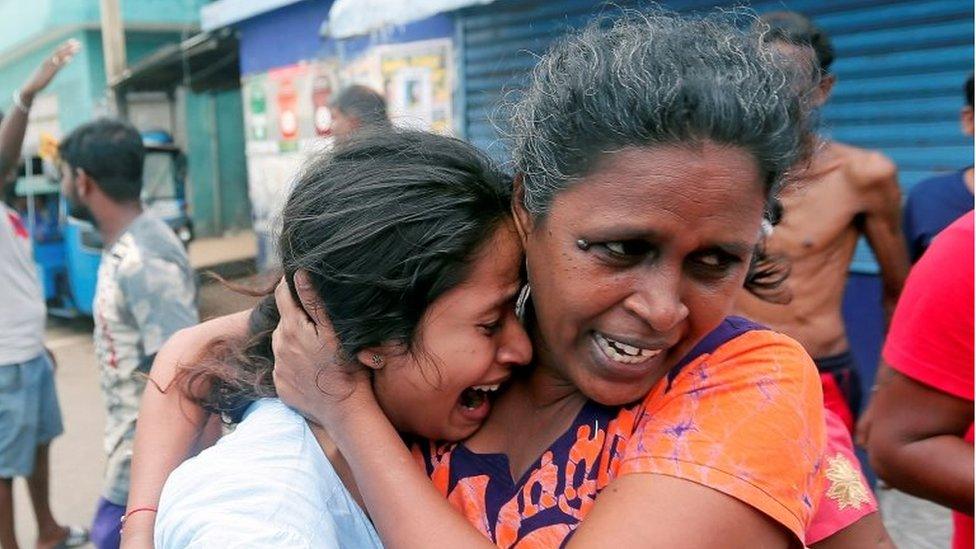
- Published23 April 2019
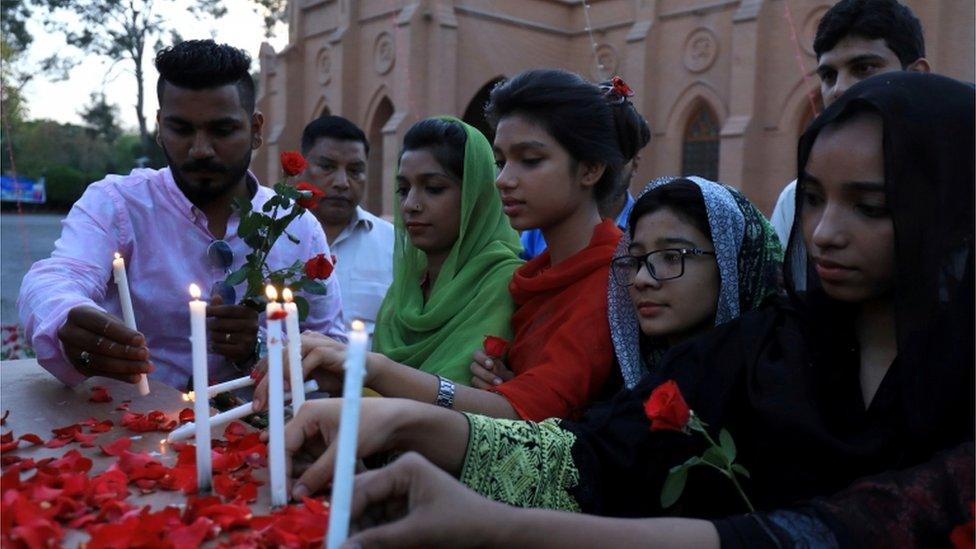
- Published3 May 2019
